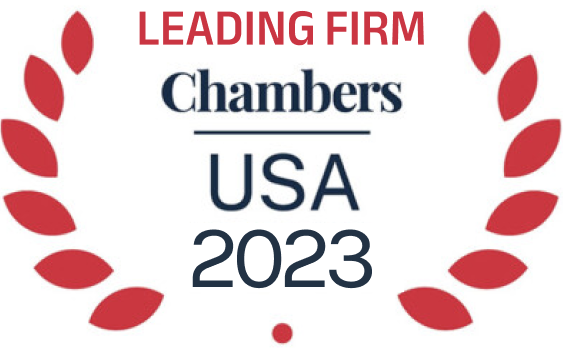
California False Claims Act
Fight fraud against the state and share in the recovery
Whistleblower statutes generally allow a whistleblower to report useful information to the government or file a qui tam lawsuit in court. Qui tam means that the lawsuit is filed on the government’s behalf—usually to recover government funds that were fraudulently obtained by the company the whistleblower works for (such as a government contractor overbilling the government for supplies or a physician overbilling Medi-Cal). Typically, if the government recovers money due to the whistleblower’s information, the whistleblower receives a share of the recovery.
Fraud Under the California False Claims Act
California has its own whistleblower statute which is similar to the federal one, the Federal False Claims Act. The California False Claims Act (CFCA) makes it unlawful to defraud the public by knowingly:
- Submitting a false or fraudulent claim for payment (such as an invoice) to the government of the state of California or to the government of any of California’s political subdivisions (such as a county or city)
- Misappropriating public property
- Deceptively avoiding an obligation to pay the State of California (such as deceptively avoiding to pay a fine) or deceptively failing to return funds to the State of California (such as an accidental overpayment received from the government)
The CFCA says that the fraud must be committed “knowingly” — what does that mean?
The legal definition of “knowingly” includes three different types of “knowledge”:
- Acting purposely
- Acting with reckless disregard of the truth
- Acting with willful ignorance of the truth
Acting purposefully would include a government contractor who falsely certified that the job was done when he knew it was only 80 percent finished. Acting with reckless disregard of willful ignorance is often referred to as “burying your head in the sand.”
Courts have held that if a company’s own records show that the information they submitted to the government was false, the company recklessly disregarded or was willfully ignorant of the truth, since the company should have known what its own records said.
Penalties Under the California False Claims Act
If a person or company violates the CFCA, they must pay up to three times the amount (treble damages) of money they defrauded or misappropriated from the government. On top of that, the person or company violating the CFCA will have to pay up to $11,000 for each violation. California whistleblowers can file a qui tam lawsuit and share in the government’s recovery.
Question about the California False Claims Act?
CFCA: Whistleblower Rewards & Government Intervention
The CFCA grants the government an opportunity to intervene in a qui tam lawsuit once it is filed. “Intervene” means that the government may enter the lawsuit and take primary responsibility for prosecuting the case.
If the government decides to intervene and wins an award or settlement, the whistleblower is entitled to share between 15 and 33 percent of the recovery. If the government declines to intervene and the whistleblower wins the lawsuit without them, the whistleblower is entitled to between 25 and 50 percent of the funds recovered.
California False Claims Act Amendments
Governor Brown signed legislation in 2012 expanding the CFCA. The Federal False Claims Act requires states that wish to pursue Medicaid fraud to pass whistleblower statutes that are at least as strong as the Federal False Claims Act.
The 2012 amendments do three main things:
- Extend the CFCA to include subcontractors
Anyone who submits a false or fraudulent claim to a general contractor who is working for the state of California is liable for violating the CFCA. - Allow the Attorney General to override the “public disclosure bar”
The public disclosure bar is part of the CFCA that says that if the information that the whistleblower knows has been publicly disclosed (such as in a newspaper or government report), then the whistleblower is not allowed to bring a qui tam lawsuit. However, if the Attorney General feels that the whistleblower has been helpful in other ways, the 2012 amendments allow the Attorney General to override the public disclosure bar and allow the whistleblower’s qui tam lawsuit to continue. - Expand the “original source exception”
There is an original source exception to the public disclosure bar. Even if information about a company’s fraud has been publicly disclosed, a whistleblower may now file a qui tam lawsuit if the whistleblower has important additional information that is “independent of, and materially adds to, the publicly disclosed allegations.” So, if a newspaper prints an article about a company’s fraud, but an employee at the company knows via their job that the fraud goes deeper than the newspaper realized, then the employee can still file a lawsuit under the CFCA.
California False Claims Settlements
The State of California has recovered over $1 billion under the CFCA. The following is a list of companies sued under the California False Claims Act, along with a brief description of the allegations, and how much they paid to settle the lawsuit:
Bank of America: $300 Million
The alleged violation of the CFCA was that Bank of America had defrauded the state’s pension funds, CalPERS and CalSTRS, by misrepresenting the strength of its mortgage-backed securities (in omitting information about the underlying mortgages and the bank’s lack of due diligence in weeding out poor quality loans).
Eli Lilly: $112 Million
The allegations were that Eli Lilly had aggressively marketed its drug Zyprexa for unapproved uses, costing Medi-Cal millions of dollars paying for these unapproved off-label uses. The whistleblowers received 18 percent of the recovery in the Eli Lilly settlement.
Hanson Building Materials: $42.2 Million
The allegations in the complaint were that Hanson had cheated the California government out of tens of millions of dollars over a ten year period by: (a) taking and selling two million cubic yards of sand from state lands that Hanson was not supposed to be dredging on, and (b) understating the price and quantity of sand they dredged from lands they were allowed to be on in order to pay the government less money for the sand.
K12 Inc.: $2.5 Million
The allegations in the complaint were that K12 and its affiliated charter schools submitted inflated student attendance numbers in order to collect more state funding from the California Department of Education than they were entitled to.
Los Angeles Department of Water & Power: $160 Million
The allegations were that the power company had inflated the electric bills of its government customers since as early as 1998. The whistleblowers received up to 19 percent of the recovery.
Sandoz, Inc: $75 Million
The allegations were that Sandoz fraudulently inflated the price of its drugs when reporting them to a pricing-database used by the government. The whistleblower was Ven-A-Care, a competitor of Sandoz. Ven-A-Care stated that it came forward because it accurately priced its own drugs but was disturbed by what some of its competitors were doing.
Schering-Plough: $21.3 Million
The allegations were that Schering-Plough reported falsely inflated prices for Albuterol and other inhalers, causing Medi-Cal to overpay for the inhalers.
Tyco International et al.: $60 Million
The allegations were that Tyco and other manufacturers provided substandard parts for the state’s water supply system and some of those parts contained amounts of lead that exceeded industry standards.
Quest Diagnostics: $241 Million
The complaint alleged that Quest Diagnostics charged the government up to 6 times more for a blood test of someone on Medi-Cal than it charged non-Medi-Cal customers. The whistleblower was a competitor of Quest Diagnostics—Hunter Laboratories—that said that unlike its competitors, it elected not to overbill Medi-Cal, but knew that its competitors were doing so. The whistleblower received 29 percent of the recovery.
Learn More about California Qui Tam Laws
Our California False Claims Attorneys
Eric Gibbs
Eric prosecutes financial fraud and other mass torts matters. He has recovered billions of dollars for clients and led high profile class actions.
View full profileDylan Hughes
Dylan concentrates his practice on investigating and prosecuting fraud matters on behalf of whistleblowers, consumers, and employees.
View full profileAmy Zeman
Amy has built a reputation in the plaintiffs’ bar for delivering results to consumers and sexual assault survivors in class actions and mass torts.
View full profileAaron Blumenthal
Aaron represents consumers, employees, and whistleblowers in class actions and other complex litigation.
View full profileAbout Us
Speak with a California false claims attorney:




